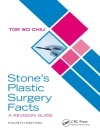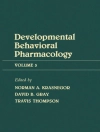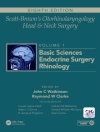In this book, internationally recognised experts provide an update on some important basic and technical aspects of neurosurgery. Intracranial tumours are the main focus of the book with chapters dealing with ependymomas, a tumour that still offers difficulties of interpretation in terms of both pathological features and management modalities, intraventricular tumours, which require particular attention in the choice of treatment modalities, and tumours considered typically paediatric that may still present in adulthood although with different aspects. Technical approaches to difficult anatomical areas are discussed in three chapters, dealing with the orbit, the craniocervical junction and the brainstem, respectively. Two rather didactic chapters, dealing with the minimally invasive technique for the spine and the clipping of cerebral aneurysms, are intended to contribute to the training of young neurosurgeons by illustrating the surgical steps in detail. The contribution of ultrasound to neurosurgery is illustrated in two chapters that should arouse great interest. The so-called Chiari malformations is approached in a chapter emphasising the role of cranio-cerebral disproportion in their pathogenesis. Finally, a chapter devoted to the ethical attitude that should characterise the daily practice of the neurosurgeon completes the book.
Like the previous volumes in the series, this one represents an important contribution to the advancement of neurosurgical specialities.
Inhaltsverzeichnis
Towards the “Perfect” Shunt: Historical Vignette, Current Efforts, and Future Directions.- Ependymoma from benign to highly aggressive diseases: A review.- Intraventricular Tumours: Surgical Considerations in Lateral and Third Ventricular Tumours.- Multi-modal approach for the treatment of complex hypothalamic hamartomas.- Paediatric Like Brain-Tumours in Adults.- The Value of Intraoperative Ultrasound in Brain Surgery.- Clipping of anterior circulation aneurysms: operative instructions and safety rules for young cerebrovascular surgeons.- 360 Degrees Endoscopic Access to and Through the Orbit.- Pros and Cons of Minimally Invasive Spine Surgery.- Craniovertebral Junction surgical approaches: State of Art.- Evaluation and treatment of patients with small posterior cranial fossa and Chiari malformation, types 0 and 1.- Values-Based Medicine is an ethical concept for implementing the ethical principles in daily practice.
Über den Autor
Prof. Di Rocco is an internationally recognized pediatric neurosurgeon who has performed more that 12, 000 neurosurgical operations on brain and spinal cord tumors, hydrocephalus, arachnoid cysts, craniosynostosis, cerebral and spine malformations (hemimegalencephaly, cortical dysplasia, lipomyelomeningocele, myelomeningocele, spinal lipoma, Chiari type I malformation), neurophacomatoses and epileptic disorders. Since May 2014, Prof Concezio Di Rocco has moved to Hannover, Germany to become the Director of Pediatric Neurosurgery at the International Neuroscience Institute (INI).
He is the main Editor of Child’s Nervous System, the Official Journal of the International Society for Pediatric Neurosurgery, European Journal for Pediatric Neurosurgery, Japanese Society for Pediatric Neurosurgey, Korean Society for Pediatric Neurosurgery, Brasilian Society for Pediatric Neurosurgery.












